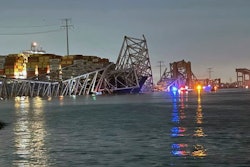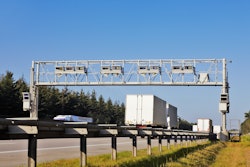The goal of any business is to be a “going concern,” meaning one that is making a profit. Large companies can have red ink in one part of an operation and offset that by black ink in another. A particular example is the big truck manufacturers that have their own parts divisions, where cash flow from parts helps carry them through lean years.
Companies just launching emerging technologies generally don’t have any of those alternative income streams available to them. Cash flow is critical in all operations, but when your business wagon is being pulled by one horse, a thrown shoe can be devastating.
2023 has emerged as a year of failed aspirations, where new technology companies with great expectations have struggled. Locomation, a Pittsburgh autonomous vehicle start-up with promising connections to Cummins and fleets like PGT Trucking and Christensen Transportation cut staffing by 70% in February. TuSimple, an autonomous truck technology company announced in May that it would cut its global staff by 30% and was going to restructure. Nikola, a battery electric and fuel cell electric vehicle manufacturer had a rough second quarter but was delivering trucks and announcing new product launches. Proterra, an electric bus manufacturer with thousands of vehicles on the road announced this month that it had entered bankruptcy.
No doubt the last few years have been challenging for everyone, not just start-ups, with impacts due to the COVID pandemic, supply chain issues that impacted the availability of a wide range of components and raw materials, inflationary pressures expressed as rising interest rates, and more.
Among the headlines of challenging business news, technology companies of all sizes and ages continue to invest heavily in new innovations. It is a period worthy of a name just as significant as the Industrial Revolution, the Bronze Age or the Iron Age. As an example, look at the timeline of the simple phone. Patented in 1876, it largely evolved slowly from a wind-up ringer box hanging on the wall with operators manually making connections to the push button dial in 1963, then clunky mobile handheld wireless phone in 1973, the first smartphone in 1993, and the first iPhone in 2007. Look where we are in 2023. The capability and market penetration of this technology is phenomenal, and most of that has occurred in fewer than 20 years.
That rapid, recent explosion of innovation is being paralleled in multiple technologies relevant to the trucking industry. In under 15 years, production diesel trucks have gone from 6 MPG to more than 10 MPG due to advances in engines, aerodynamics, tires, light weighting, routing, asset management through GPS tracking, speed and safety digital systems, and more. It’s been less than six years since Tesla revealed its battery electric Semi in 2017, and Run on Less – Electric DEPOT today is revealing multiple real-world operations that have rolled out battery electric tractors at scale.
Daimler’s reveal of an autonomous truck driving over the Hoover Dam was just in 2015, and today we have multiple companies running autonomous trucks on the highways of Texas and other states. Major manufacturers like Paccar, Nikola and Hyundai are bringing production hydrogen fuel cell electric trucks to the U.S. market this year. E-commerce has exploded in just 20 years to the point where we expect near instantaneous delivery of products to our door. COVID revealed to the world the greatest freight technology advancement of all: heroic drivers.
This is a new age in truck transportation – a new freight epoch. It desperately needs a name.












